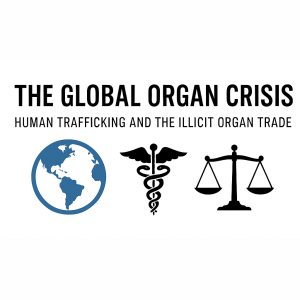The Global Organ Crisis: Human Trafficking and the Illicit Organ Trade
 The Global Organ Crisis: Human Trafficking and the Illicit Organ Trade
The Global Organ Crisis: Human Trafficking and the Illicit Organ Trade
By Dr. Michelle Beshears
The Global Organ Shortage: A 2024–2025 Snapshot
The global organ shortage remains a critical issue, with demand far outstripping supply. As of May 2025, the United States has over 103,000 individuals on the national transplant waiting list (OrganDonor.gov, 2025). Despite a record-breaking 48,149 transplants performed in 2024 (United Network for Organ Sharing [UNOS], 2025), the gap between supply and demand continues to grow.
Internationally, the situation is equally dire. In the United Kingdom, nearly 12,000 individuals are awaiting organ transplants (The Guardian, 2025). In India, over 500,000 patients require organs annually, yet fewer than 1,100 deceased donors contributed in 2024 (Times of India, 2024). These disparities are exacerbated in regions with limited transplant infrastructure.
The Illicit Organ Trade: Scale and Scope
The World Health Organization (WHO) estimates that 5–10% of all transplants worldwide involve organs from the black market (United Nations Office on Drugs and Crime [UNODC], 2024). This illicit trade is valued between $840 million and $1.7 billion annually (Library of Parliament [LOP], 2024). Organ trafficking networks often exploit vulnerable populations, including impoverished individuals and marginalized communities, who are coerced or deceived into selling their organs.
A notable case is that of Martha Alicia Mendez Aguilar, known as “La Diabla,” a member of the Jalisco New Generation Cartel, arrested in September 2025 for allegedly operating a trafficking ring involving the illegal harvesting of organs and the sale of babies (New York Post, 2025).
Legislative Responses and Enforcement Challenges
In response to the growing crisis, the World Health Assembly adopted a resolution in May 2024 to increase the availability, ethical access, and oversight of transplantation of human cells, tissues, and organs (World Health Organization [WHO], 2024). However, enforcement remains a significant challenge due to the clandestine nature of organ trafficking networks and the need for international cooperation.
Protecting Vulnerable Populations
Vulnerable populations, including children and marginalized communities, are at heightened risk of exploitation for organ trafficking. Reports indicate that criminal organizations have targeted these groups for illegal organ harvesting, often under the guise of medical treatment. Protective measures, including legal safeguards and awareness campaigns, are crucial in combating this exploitation.
Addressing the Crisis: A Multifaceted Approach
To mitigate the global organ shortage and combat the illicit trade, a comprehensive strategy is required:
-
Increase Public Organ Donation: Implementing policies to encourage organ donation, such as presumed consent systems, and launching public awareness campaigns can help close the supply-demand gap.
-
Strengthen International Legal Frameworks: Explicitly criminalizing organ trafficking and enhancing cross-border enforcement are critical to dismantling illicit networks.
-
Protect Vulnerable Populations: Implementing poverty alleviation programs, strengthening social safety nets, and increasing access to healthcare can reduce the vulnerability of at-risk populations.
-
Enhance Global Monitoring: Establishing international databases and increasing transparency in transplant systems can help detect and prevent illegal activities.
Without comprehensive interventions, the illicit organ market will continue to thrive, exploiting the poor while patients in need face life-or-death decisions.
References
Library of Parliament. (2024). Human trafficking for organ removal in Canada and globally. https://lop.parl.ca/sites/PublicWebsite/default/en_CA/ResearchPublications/202083E
New York Post. (2025, September 25). Female cartel member ‘La Diabla’ busted for running horrific baby-trafficking, organ-harvesting rings. https://nypost.com/2025/09/25/world-news/la-diabla-martha-aguilar-arrested-for-alleged-baby-trafficking-organ-harvesting-rings/
OrganDonor.gov. (2025). Learn about organ donation statistics. U.S. Department of Health & Human Services. https://www.organdonor.gov/learn/organ-donation-statistics
The Guardian. (2025, July 9). Number of patients in UK waiting for lifesaving organ transplant at record high. https://www.theguardian.com/society/2025/jul/09/number-of-patients-in-uk-waiting-for-lifesaving-organ-transplant-at-record-high
Times of India. (2024, December 12). Online organ donation portal to bridge demand-supply gap. https://timesofindia.indiatimes.com/city/delhi/online-organ-donation-portal-to-bridge-demand-supply-gap/articleshow/124129657.cms
United Network for Organ Sharing. (2025). U.S. surpassed 48,000 organ transplants in 2024. https://unos.org/media-resources/releases/u-s-surpassed-48000-organ-transplants-in-2024/
United Nations Office on Drugs and Crime. (2024). Explainer: Understanding human trafficking for organ removal. https://www.unodc.org/unodc/frontpage/2024/June/explainer_-understanding-human-trafficking-for-organ-removal.html
World Health Organization. (2024, May 30). Seventy-seventh World Health Assembly – Daily update. https://www.who.int/news/item/30-05-2024-seventy-seventh-world-health-assembly—daily-update–30-may-2024
About the Author
Dr. Michelle L. Beshears holds undergraduate degrees in social psychology and criminal justice, as well as graduate degrees in human resource development and criminology, from Indiana State University. She served 11 years in the U.S. Army, achieving the rank of Staff Sergeant before commissioning as an officer. Dr. Beshears has led multiple criminal investigations and collaborated with federal and local agencies, including the FBI. She is pursuing a Doctorate in Criminal Justice and serves as an associate professor at American Military University & American Public University. She lives in Clarkridge, Arkansas, with her husband and two children.

